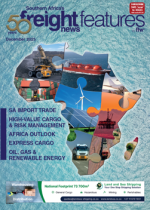Greater political will is needed to transform Africa’s railways from the colonial era of steam to modern systems which reduce the logistics cost of doing business.Plans for a continent-wide rail network date back to 2006 when African ministers responsible for rail transport met in Brazzaville.It took eight years, until April 2014, for the ministers to adopt the “Revitalisation of the Railway in Africa – Destination 2040” strategy for railway development in Africa.The vision is to establish "a reliable, viable, efficient, environmentally friendly and affordable rail transport system capable of promoting, in complementarity with other modes of transport, socio-economic development and regional integration whilst contributing to improving the standing of the continent at the global level" by 2040.Subsequently, African countries and the African Union have started working together to roll out an "Integrated African Rail Network" as part of Agenda 2063, the African Union's master plan which lists an integrated African rail network as one of its 15 f lagship projectsMore recently, the declaration from the International Forum on financing rail projects in Africa hosted in Dakar, Senegal, in October 2023, states “railway development is essential to guarantee the movement of people and goods, and provides the conditions for boosting the productivity and competitiveness of African economies, while also contributing to the fight against climate change”.The declaration recommends that African countries use the Luxembourg Rail Protocol to finance rolling stock.The protocol grants holders of international interests in rolling stock clear rights as creditors, including rights of repossession on debtor default or insolvency.The forum supported the introduction of a global carbon taxation system, consisting of a carbon tax applied to fossil fuel trading, and to road, sea, and air modes of transport, complemented by a global Financial Transaction Tax to provide dedicated, affordable services and accessible funding to boost rail investment and promote public transport with interconnected cycling and pedestrian infrastructure.“New rules for financing rail projects should enable industrial or service sectors, that are unable to achieve the required carbon neutrality, to subsidise or finance rail infrastructure and public transport projects through carbon offsetting,” the declaration states.So far there has been much talk and little action. Despite the distances goods need to be transported, African freight traffic is just 7% of the global total.For passenger traffic this share falls to 2%, according to the International Union of Railways.According to Tralac researcher Willem Viljoen, the average cost to transport a container within West and Central Africa is $2.43 per kilometre, which is 1.5 and 2.2 times the freight rates applied in South Africa and the United States.For landlocked countries transport costs represent on average 45% of the value of imports and 35% of exports.This is much higher than the global averages of 5.4% (for imports) and 8.8% (for exports).These costs are due to a combination of poor and underdeveloped physical infrastructure, lack of regional and international transport connectivity, inefficient logistics services, piracy, mutual mistrust among operators, cartels of transport providers, freight sharing schemes and access to shipping services.

